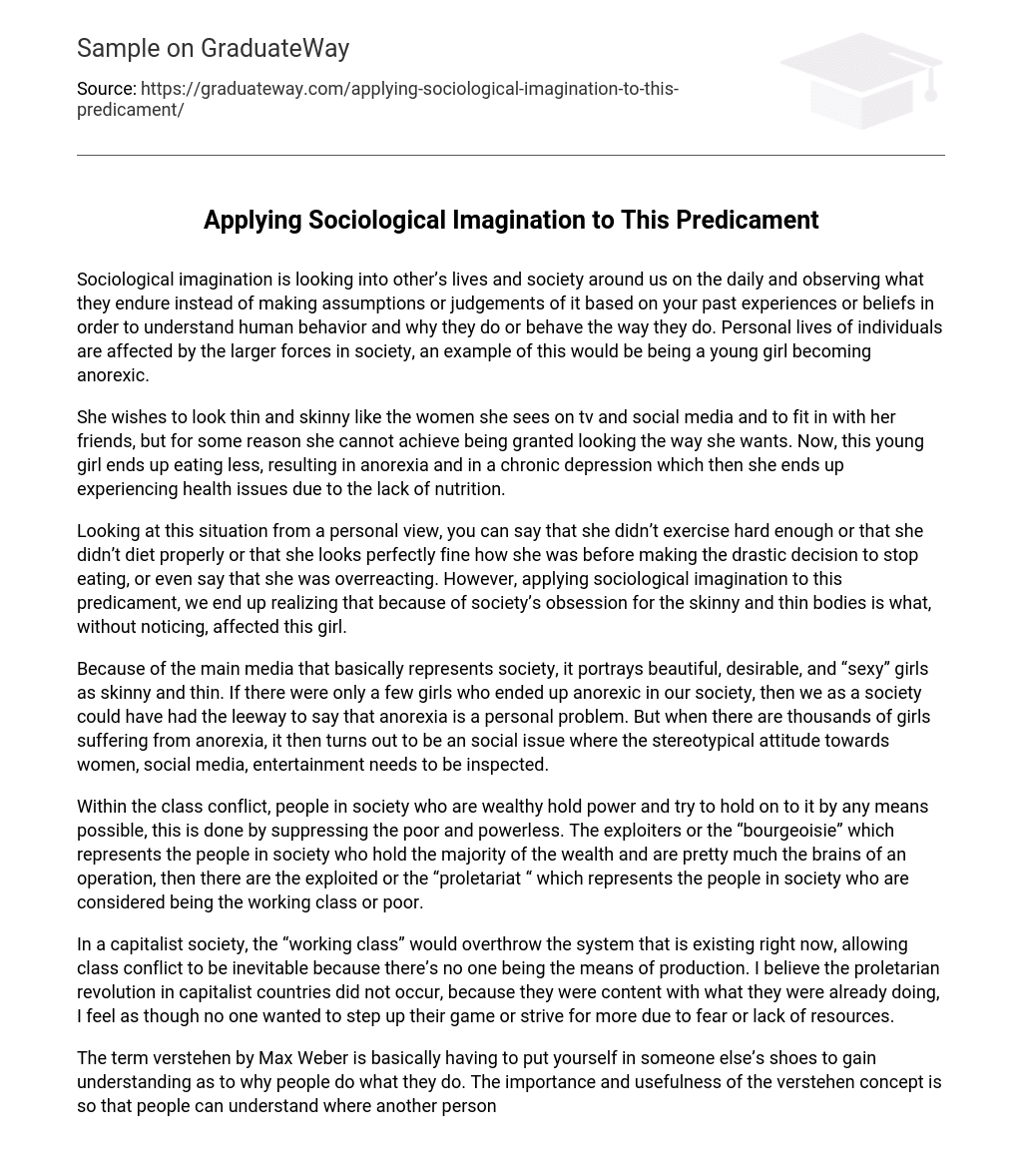Sociological imagination is looking into other’s lives and society around us on the daily and observing what they endure instead of making assumptions or judgements of it based on your past experiences or beliefs in order to understand human behavior and why they do or behave the way they do. Personal lives of individuals are affected by the larger forces in society, an example of this would be being a young girl becoming anorexic.
She wishes to look thin and skinny like the women she sees on tv and social media and to fit in with her friends, but for some reason she cannot achieve being granted looking the way she wants. Now, this young girl ends up eating less, resulting in anorexia and in a chronic depression which then she ends up experiencing health issues due to the lack of nutrition.
Looking at this situation from a personal view, you can say that she didn’t exercise hard enough or that she didn’t diet properly or that she looks perfectly fine how she was before making the drastic decision to stop eating, or even say that she was overreacting. However, applying sociological imagination to this predicament, we end up realizing that because of society’s obsession for the skinny and thin bodies is what, without noticing, affected this girl.
Because of the main media that basically represents society, it portrays beautiful, desirable, and “sexy” girls as skinny and thin. If there were only a few girls who ended up anorexic in our society, then we as a society could have had the leeway to say that anorexia is a personal problem. But when there are thousands of girls suffering from anorexia, it then turns out to be an social issue where the stereotypical attitude towards women, social media, entertainment needs to be inspected.
Within the class conflict, people in society who are wealthy hold power and try to hold on to it by any means possible, this is done by suppressing the poor and powerless. The exploiters or the “bourgeoisie” which represents the people in society who hold the majority of the wealth and are pretty much the brains of an operation, then there are the exploited or the “proletariat “ which represents the people in society who are considered being the working class or poor.
In a capitalist society, the “working class” would overthrow the system that is existing right now, allowing class conflict to be inevitable because there’s no one being the means of production. I believe the proletarian revolution in capitalist countries did not occur, because they were content with what they were already doing, I feel as though no one wanted to step up their game or strive for more due to fear or lack of resources.
The term verstehen by Max Weber is basically having to put yourself in someone else’s shoes to gain understanding as to why people do what they do. The importance and usefulness of the verstehen concept is so that people can understand where another person is coming from.
An example would be a woman being in a domestic relationship and being scared to tell authorities or someone else outside of the relationship what she’s enduring, many people looking at that domestic situation from the outside would ask why she doesn’t just run, or seek help but are not aware of the fear that she might consume, or the threats her partner can be telling her or if she’s staying for children that they share. Using the verstehen concept, it allows people to be more sympathetic to the situation that they don’t experience personally but what another person is experiencing that they probably would never experience.





